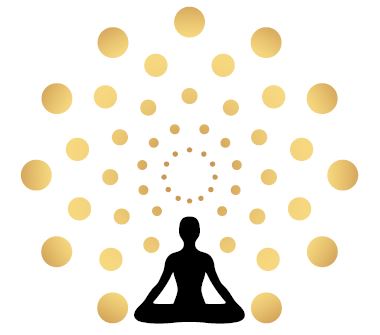How A Spiritual Coach Works With Your Energy
I’ve received a few questions lately about how my Spiritual Awareness & Integration Reading works – specifically, how can I tune into someone’s energy without a live session?
If you’ve been wondering the same thing, let’s talk about it.
How Energy Can Be Read Without a Live Session
Energy doesn’t require physical proximity to be perceived. Just as you can sense someone’s presence in a room without them speaking, or feel the mood shift when someone enters a space, your energetic field holds information.
As a long-time meditator and highly attuned yogi, I connect with the universal field of consciousness through deep meditative attunement, allowing me to access what is most relevant to you at this time. By tuning into your energetic field, I gain insight into where you are on your spiritual journey and what needs to come into awareness for faster processing, integration, and growth.
Nothing is revealed to me that isn’t meant for these purposes. Your higher self is aware of this energetic exchange and your desire for the reading allows me to access it as your conscious permission has been given.
Through deep attunement, I access this field, translate what is most relevant for you at this moment, and put it into words. It’s a direct energetic reading – not based on conversation, but rather connection. I’m tapping into universal consciousness and accessing information specific to YOU.
Why This Reading is Written, Not Live
Some people wonder if a live Zoom session is necessary. The truth is, no it isn’t because energy speaks beyond words.
Instead of a fleeting conversation, this report offers something deeper—an 8+ page personalized reading that you can revisit, reflect on, and integrate at your own pace. Many find that the written format allows for greater clarity, as they can absorb the insights over time rather than feeling rushed to process them in a single session.
Who This is For (and Who It’s Not For)
This reading is for those who:
✔ Trust that the right insights come at the right time.
✔ Are open to receiving energy work in a non-traditional format.
✔ Want to deepen their self-awareness and move through blocks.
This reading may not be for those who:
❌ Need real-time verbal validation.
❌ Are looking for physical confirmation rather than intuitive insight.
❌ Are looking for a structured coaching format rather than a self-guided integration process.
If You Feel Called to This Work…
If this resonates, your reading will be a deep reflection of your energetic state—guiding you toward clarity, alignment, and integration. Learn more here: Spiritual Awareness & Integration Reading
And if it doesn’t feel aligned, that’s okay too— this work meets those who are ready.



